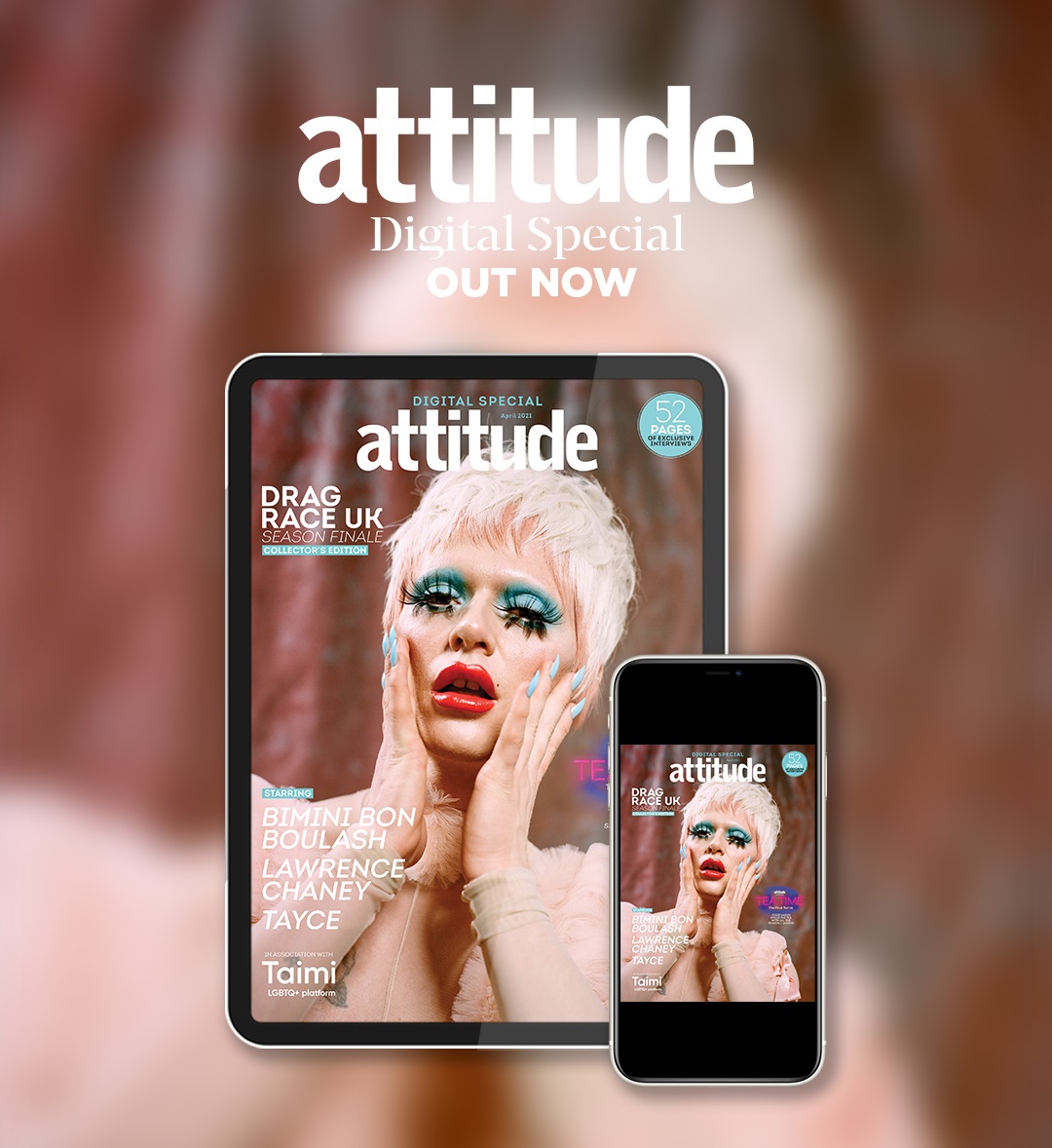I Am Samuel: Behind the epic documentary offering insight into the lives of gay Kenyans
After its screening at BFI Flare: London LGBTIQ+ Film Festival, we delve into the powerful stories of I Am Samuel's Sam and Alex
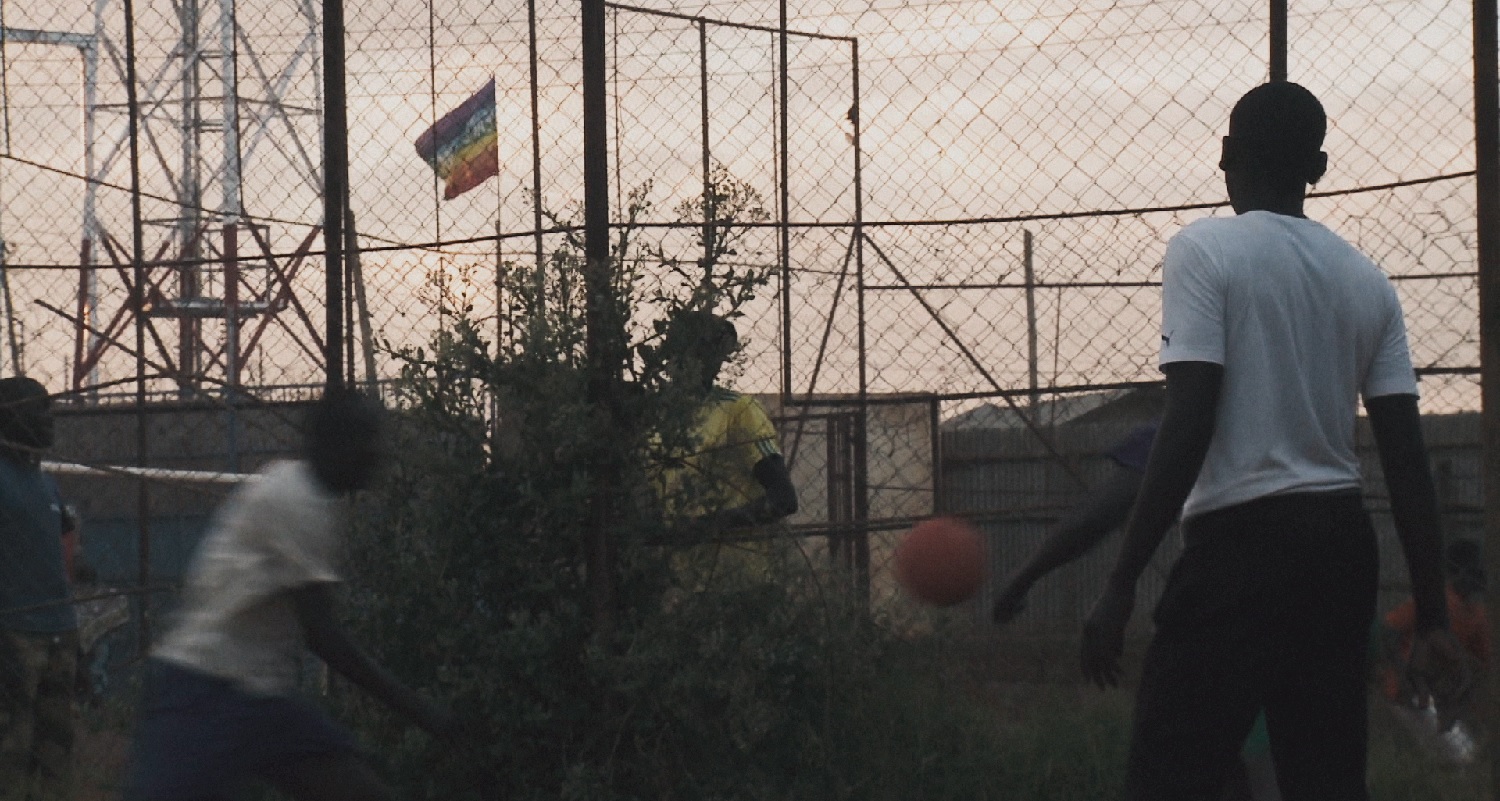
Words: Lerone Clarke-Oliver; picture: Samuel playing netball with his friends as the sun sets on Nairobi (all pics provided)
I Am Samuel explores the lives of gay Kenyans Samuel and Alex – both of whom, according to director Peter Murimi, have now left Kenya. Here, writer Lerone Clarke-Oliver learns more about their story.
Kenya is considered to be one of the most progressive African nations. However, in 2019, the Kenyan High Court left LGBTQ+ activists disappointed when it upheld a colonial-era law that punishes homosexual acts with up to 14 years in prison.
Although Kenya’s government raised an alarm on increased cases of gender-based-violence, it has offered no targeted help for LGBTQ+ people. The Gay & Lesbian Coalition of Kenya (GALCK) says the pandemic has seen up to ten reported attacks each month on the LGBTQ+ community.
Due to these headline-grabbing facts, it would be expected for a filmmaker to focus on the legal issues and harsh realities facing the community. But in the documentary I Am Samuel, director Peter Murimi presents a tender and authentic look at the lived reality of Samuel, his support network and a family’s gradual understanding of their son’s gay identity. It tenderly explores black African same-sex love, resilience, masculinity, and community, while subtly reminding us that queer love exists everywhere, and that love can find a way.
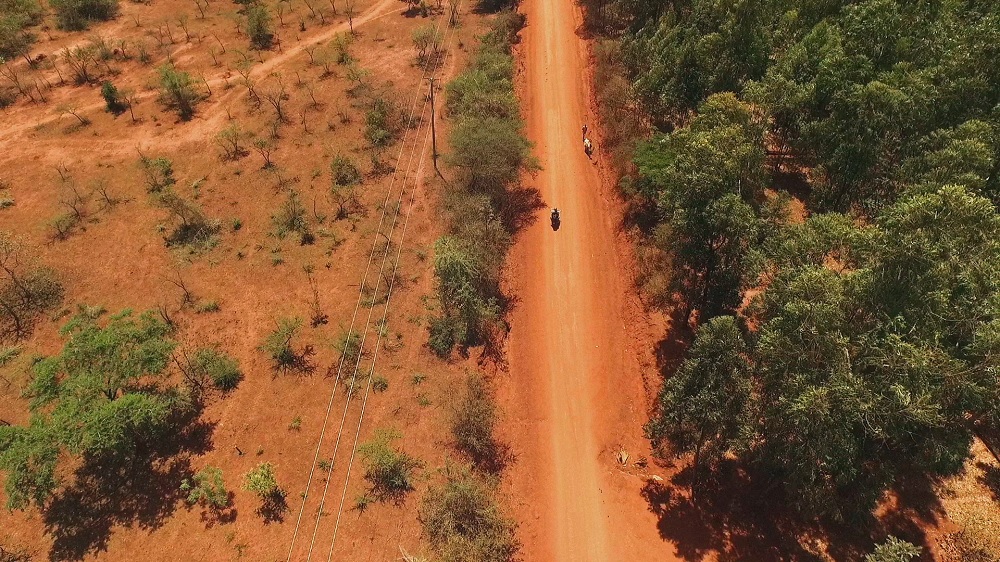
An aerial shot of rural Kenya, where Samuel’s parents live
There are moments in the film that force us to contemplate our own relationship with family or partners, our perceived turmoil and, of course, the relative safety and freedom we may have.
Samuel is not a wealthy Kenyan. He has little access to the things we take for granted, and Kenya is a country in which he can be imprisoned, attacked, tortured or killed for being his authentic self. In the West, our struggles are focused on the fight for same-sex marriage, adoption and surrogacy equality, or access to healthcare. For others around the world, liberation isn’t about equal rights, it’s simply about human rights. Despite the cultural opposition and the economic limitations that Samuel, his partner Alex and their friends face, it is revelatory to learn about the surprising similarities between Samuel’s life and our own.
The backdrop may be different, but from the monotony of work and reluctant birthday celebrations, to career aspirations and patrilineal strain, the film’s themes are familiar, with chosen family at its core. It’s in these moments that we see a queer man who is, in fact, much like us. It’s the intimate access that makes this film so vital.
A multi-award-winning documentary filmmaker from Kenya, Murimi describes himself as a passionate storyteller committed to putting the African narrative on the global stage. The recipient of the CNN African Journalist of the year award, he has been a documentary maker for over 15 years, known for highlighting “unavoidable” social issues – from police extra-judicial killings to sex work and female genital mutilation. With I Am Samuel, Peter has addressed Kenya’s on-going resistance to embracing the marginalised LGBTQ communities with admirable frankness.
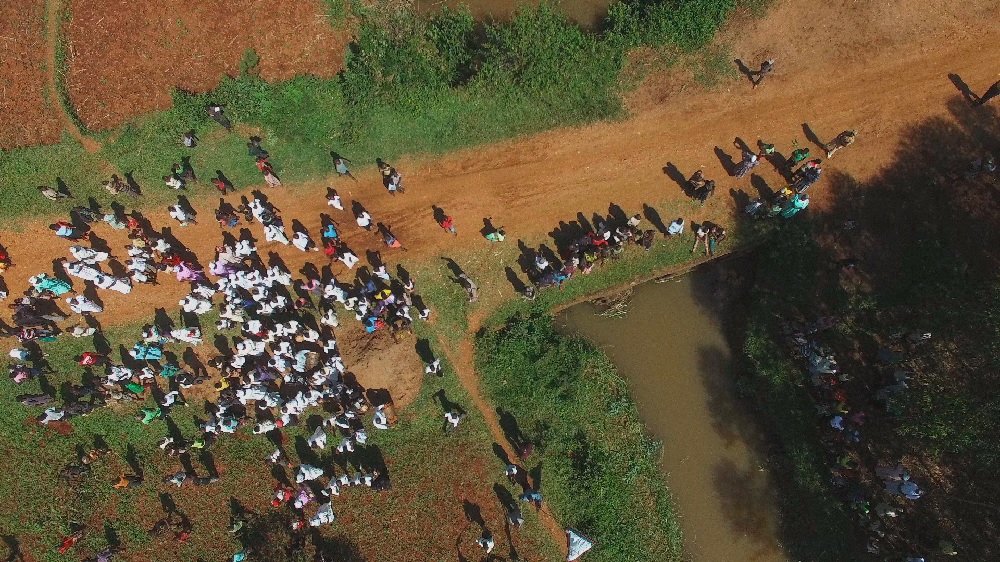
Baptism ceremony in Samuel’s village. Samuel comes from a very religious family, and was baptised in the same river as a teenager
When Murimi and I speak, he exudes paternal warmth. He’s gentle with his manner, clearly a kind, empathetic and considered man. Peter isn’t LGBTQ, but is well aware of the struggles that queer people face in his native country. We discuss the film’s themes: societal expectations, violence, love, the relationship between a father and son, generational disparities, the hypocrisy and irony that exists in religion, and the enduring impact of colonialism. We also touch on the current discourse around whether non-LGBTQ filmmakers should take on the stories of LGBTQ people, a question that has become almost a ‘checkmate’ within the queer space.
For him, there is a very straightforward response: “Someone close to me was struggling with his identity, and his family was finding it hard to accept. As a filmmaker, I knew that something like I Am Samuel would help, but it didn’t exist at the time. I had to ask myself, what can I do to help people like my friend, people like Samuel? When a straight [Kenyan], man or woman, especially from the church, speaks on LGBTQ+ rights, people listen. It is very wrong for me as a Kenyan to see other Kenyans have their rights disenfranchised and do nothing.”
Peter hopes the film will go on to help other people, Kenyan’s and other Africans alike. For Peter, I Am Samuel was intended as a tool to bring people together for “constructive dialogue about LGBTQ+ rights” and a resource highlighting that “you can be African and LGBTQ+”.
It’s a situation that Kenyan LGBTQ+ activist and journalist Kevin Mwachiro knows all too well. He believes I Am Samuel can provide hope for others. “Absolutely, I Am Samuel can and will be used as a resource for queer African people. It really showed the reality of a queer Kenyan couple and it used local languages. We will be able to relate, it says ‘gay Kenyans are here!’”
It’s a story that is rarely told. Kevin, who serves on the Gay & Lesbian Coalition Board of Kenya and is also on the board of Amnesty International, says of the film, “I was blown over! It is phenomenal and powerful because we’re being seen as regular people; that will make authorities uncomfortable because it shows Kenyans for who we are.”
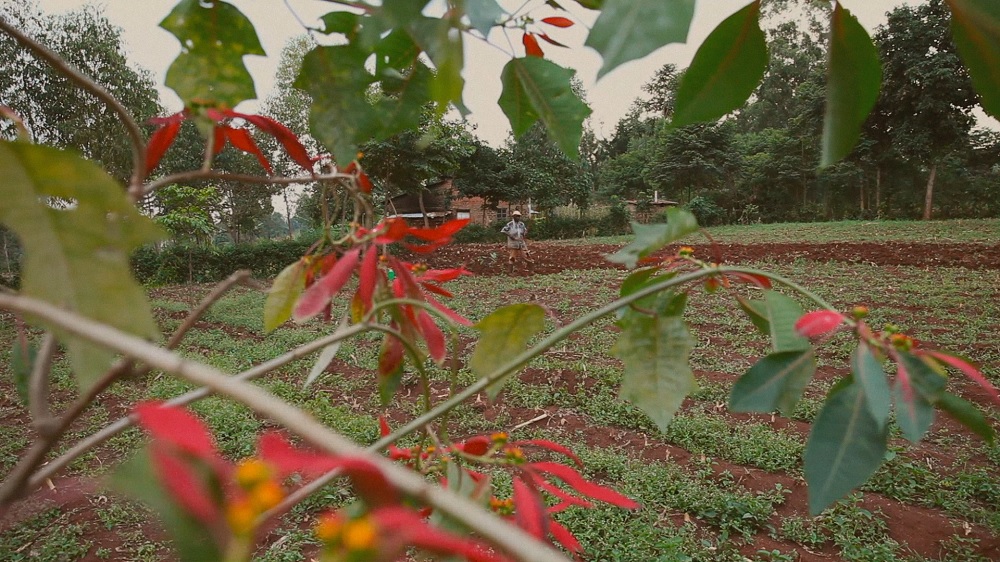
Samuel’s father Redon working on the farm. He is preparing the land for planting before the rains come
Before I Am Samuel was shot, Kevin met Murimi and producer Toni Kamau and so trusted and knew them both well. Kevin was shown an initial rough cut of the film and was able to offer feedback, insight and support over the five years it took to complete. As a community consultant, he became the soundboard that allowed the documentary to circumvent any voyeuristic or exploitative undertones that other documentary films like Paris is Burning or A Portrait of Jason have been criticised for.
Although I Am Samuel documents the touching and romantic five-year journey of two Kenyan men that have found love against the odds, it isn’t always easy viewing. We also see the volatile reality of life for LGBTQ people in Kenya – the fear of violence, an ever-present danger, is part of their everyday experience. But so is love, friendship and hope. It’s marvellous to witness these young men finding so much joy in each other’s company. When I speak to Samuel, who still lives in Kenya, he initially presents as a shy, coy man. However, when we speak about his relationship with Alex, his voice shines.
Although the film has yet to screened in Kenya, many have actively voiced their anger that their underground community may be more vulnerable as a result. I’m curious why Samuel, Alex and his friends decided to be part of such an important project that is also unquestionably hazardous since their identities are not hidden on film (as we have done for this feature). “It is important for us to be seen,” Samuel says, explaining that he doesn’t underestimate the power the film has. “It shows queerness that is not threatening.”
Despite Samuel’s documented strained relationship with his father, Samuel never – in the film nor in our conversation – presents himself as a victim. Instead, he is someone who wants the best for his loved ones and is simply exploring the possibilities of the world around him – and how best to navigate it. “As more gay people come out, tolerance will spread,” he says affirmatively.
My conversation with Samuel echoes conversations I’ve had countless times with my own friends back home in London. It’s perhaps the nugget I’ll carry with me most: I Am Samuel forces us to see ourselves in its subject’s shoes and asks who would we be in that environment? I’d like to think I’d be the same: hopeful, wide-eyed and adventurous.

Aerial shot of Nairobi, Kenya’s capital
Kevin, Murimi and even Samuel all downplay their roles in the film, and there is an unspoken sense that this is bigger than all of them, that no one was in it for any reason other than to document the queer Black Kenyan LGBTQ+ community for those that may need it.
While Kenya’s Unnatural Offences Law has rarely been enforced in recent years, in 2021 homosexuality remains illegal. Although it is rarely enforced, homophobia is institutionalised and has certainly contributed to violence. Activists say many are afraid to report abuse or to seek medical help because of stigma. Kevin points to other African nations that have decriminalised homosexuality, but are still seeing the same level of LGBTQ+ hate crimes that go un-investigated by authorities.
Kenya is in a state of flux. Both Murimi and Kevin point out the disparity between those that live in the city and those in rural areas, where Samuel’s parents live. There are thriving queer film festivals, LGBTQ+ sports teams, organisations and religious leaders who are finally engaged in conversation with Kenya’s queer community leaders. I Am Samuel is tough viewing at times, but it’s also hopeful, mesmerising and charming.
On the surface, this is a film about love flourishing against all the odds, however, at its core is a message of resilience, pride and the significance of community – whether that be our families, our partners or our allies.
“We are all Kenyan, I want queer Kenyans to know they are not alone,” Peter adds. If I Am Samuel is to become the resource its filmmakers hope it to be, it is certainly not where the Kenyan LGBTQ+ story finishes.
For more information about I Am Samuel, visit the official website.
The Attitude Tea Time digital special in association with TAIMI is out now.
Download it now for just £1.99.
